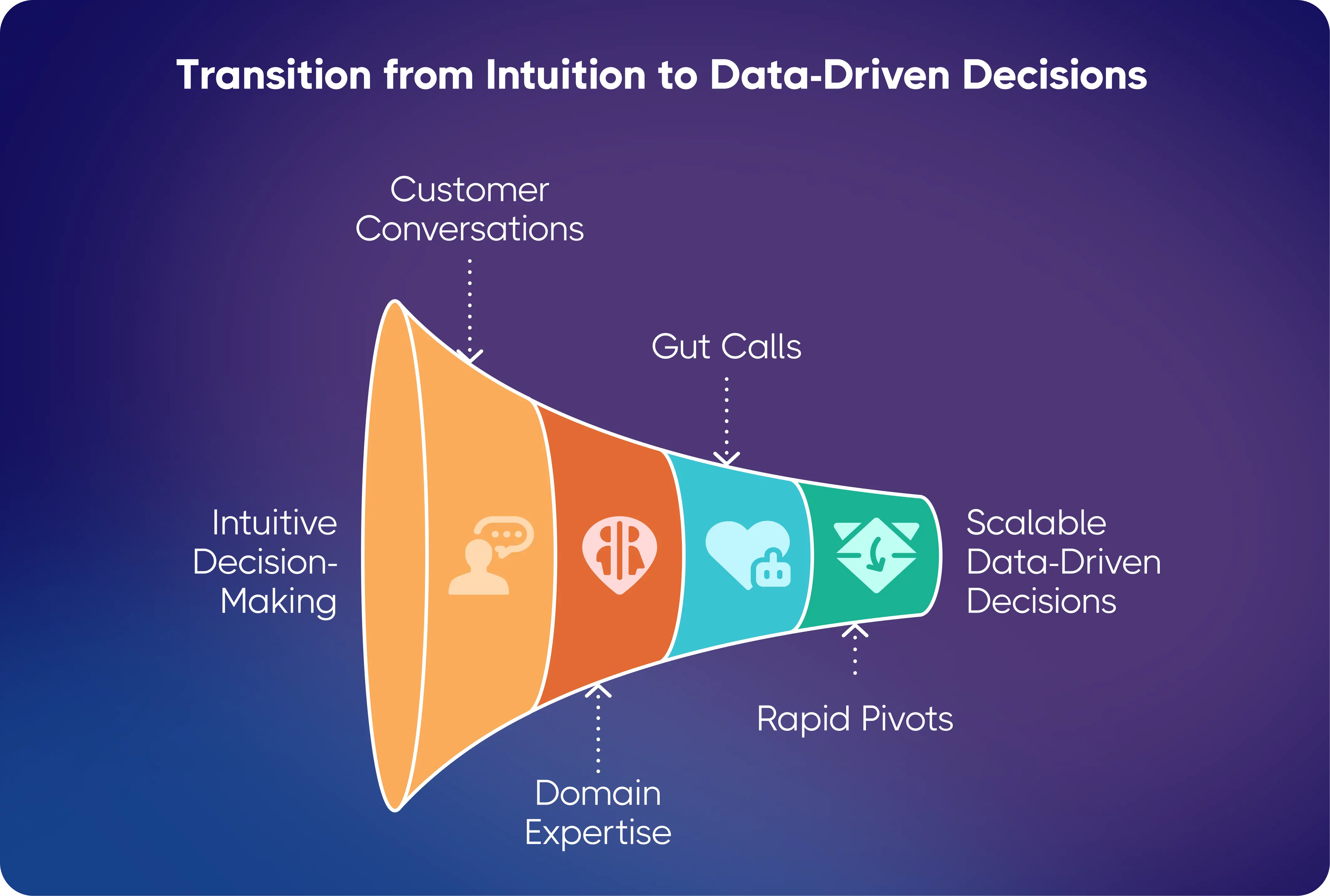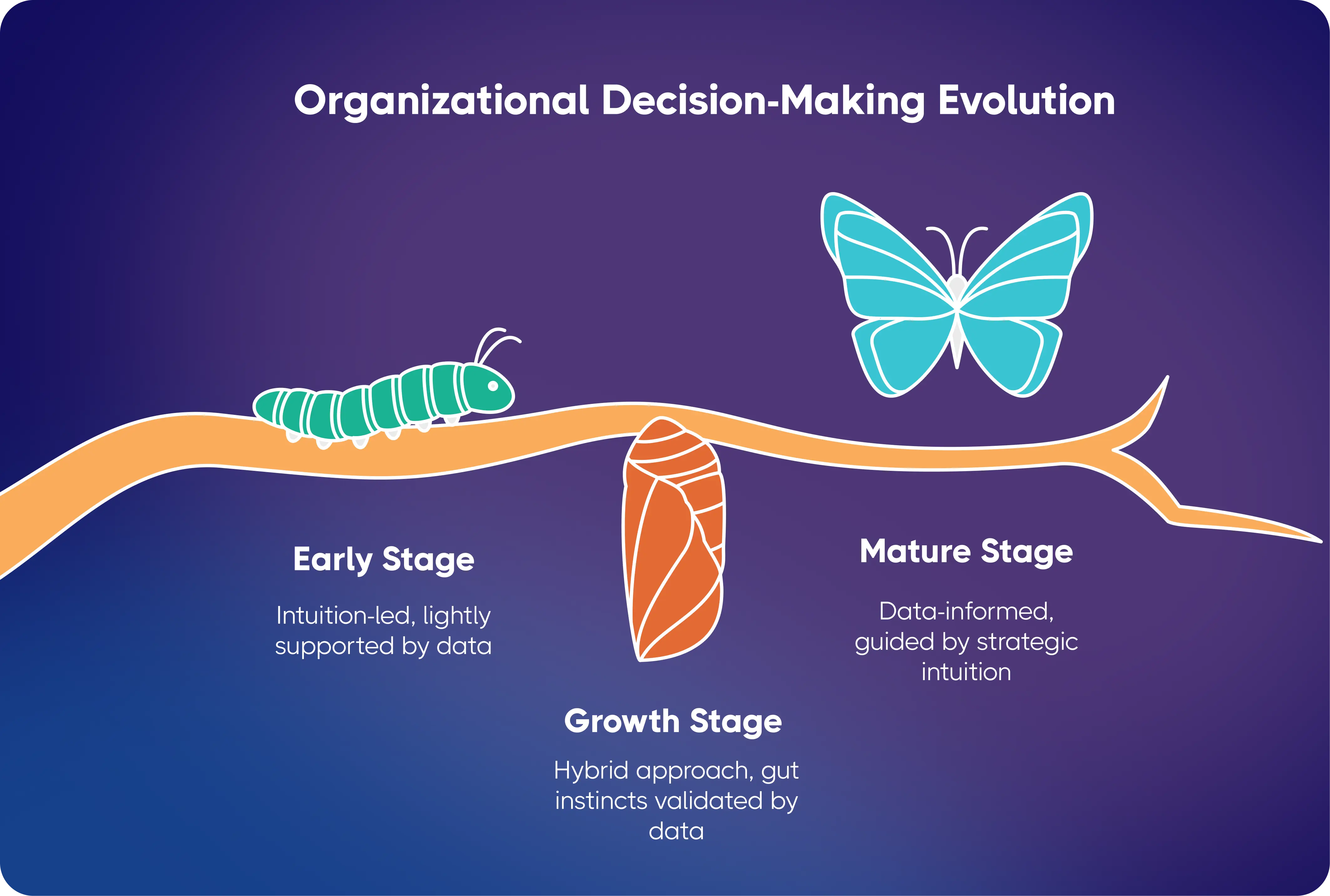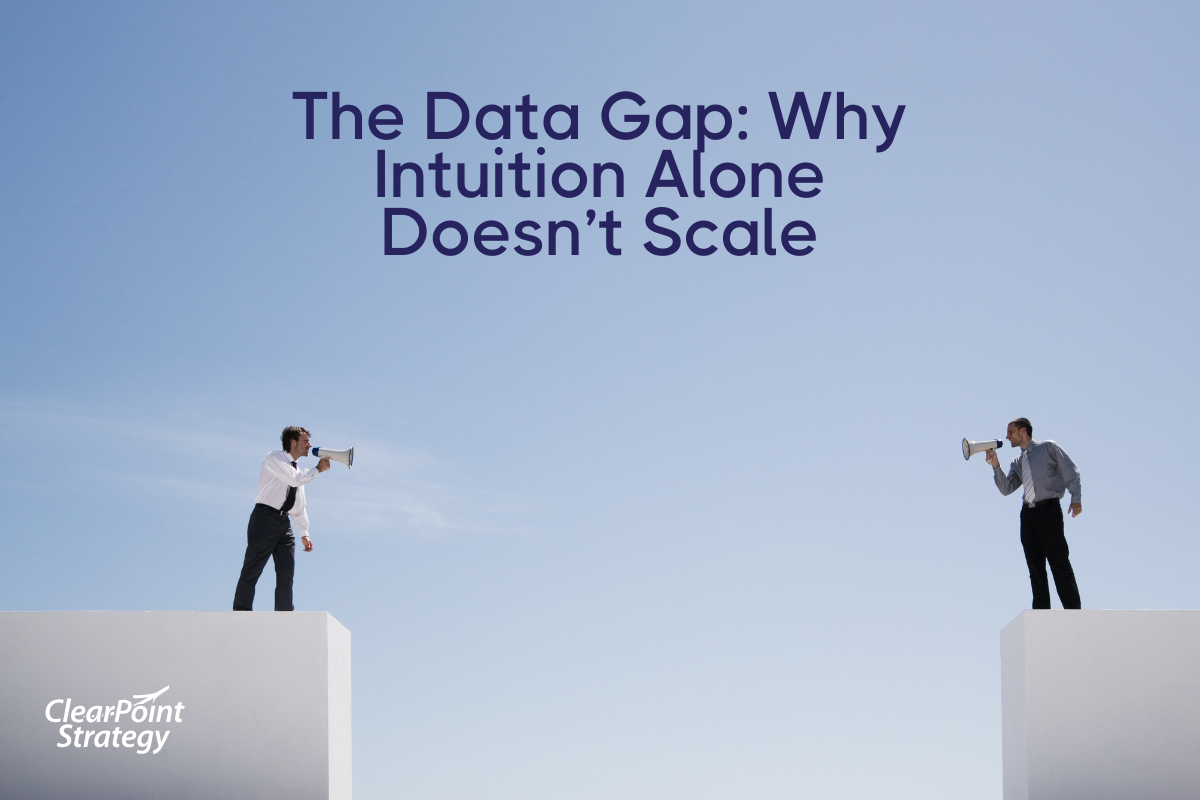We started with intuition. It fueled product decisions, rapid growth, and bold ideas. But as the stakes got higher, intuition alone wasn’t enough.
I remember the buzz in the room like it was yesterday. I was at the Balanced Scorecard Collaborative, working alongside Drs. David Norton and Robert Kaplan—the minds behind the Balanced Scorecard. Their intuition was spot-on: we needed to go digital. They launched an online Learning Center to freely share data and build Balanced Scorecards online—a bold, forward-thinking move 25 years ago. But something interesting happened. While the innovation itself was ahead of its time, it struggled to gain traction within our own consulting organization. Why? Because we didn’t put the right measures or incentives in place to drive adoption.
As John Doerr famously says,
“You get the results you measure.”
And we didn’t measure it.
This experience stuck with me. Intuition had pointed us in the right direction. But without supporting data, structure, and accountability, the innovation couldn’t scale.
The Power of Intuition in the Early Days
When we started ClearPoint Strategy, intuition played a huge role. We made product decisions based on conversations with early customers and our own instincts from years in strategy consulting. We didn’t have a massive analytics engine guiding our every step—we had a clear vision, a lot of conversations, and gut calls. And it worked.
Intuition is invaluable when an organization is small and nimble. Founders often have deep domain expertise, and they can move fast. Intuition helps you close deals, evolve the product, and pivot quickly. It builds culture and alignment, because everyone is rallied around a clear and confident voice.
But here’s the thing: intuition doesn’t scale.

The Secret to Scalable OKRs? Read our blog now.
Case Study #1: When Fast Growth Isn’t Smart Growth
Take a B2B software company I recently advised. They offered Basic, Advanced, and Enterprise editions. Their leadership believed—intuitively—that if they got clients in the door with Basic or Advanced, they could upsell them later. So the sales team focused on closing deals fast, often at low price points. On the surface, it worked: they were growing rapidly.
But the data told another story. Clients who started on Basic and Advanced were churning quickly and almost never upgraded to Enterprise. The company wasn’t building long-term value. When they finally analyzed the data, they realized they needed to rethink their sales strategy. Fewer, higher-quality deals focused on Enterprise from the start would build a more sustainable business—even if it meant slower initial growth.
Intuition got them started. Data helped them course-correct.
Case Study #2: Local Government and the Limits of Good Intentions
We see the same pattern in the public sector. I worked with a local government whose leadership had a strong belief: if they cleaned up downtown, people would return, businesses would invest, and the city would thrive. The “broken windows” theory in action.
But despite these good intentions, progress stalled. Cleaning up downtown wasn’t a one-department job. It required coordination across community policing, public works, lighting, commerce, and transportation. They needed data to align teams, track KPIs, and manage cross-departmental projects. Once they implemented ClearPoint and began tracking performance in real time, things changed. Initiatives gained traction, departments aligned, and the vision started turning into reality.
Again, intuition gave them direction. Data gave them results.
The Inflection Point: When Data Becomes Essential
Organizations hit an inflection point as they grow. Complexity increases. Silos form. Decisions have broader impact. And that’s where intuition alone starts to break down. You need to supplement it with data—not to replace instinct, but to refine it.
In my experience, the most successful organizations evolve through three stages: 1. Early Stage: Intuition-led, lightly supported by data. 2. Growth Stage: A hybrid approach—gut instincts validated (or challenged) by data. 3. Mature Stage: Data-informed decision-making, guided by strategic intuition.

The key is knowing when you’ve outgrown your gut.
We wrote the book on strategy execution... literally. Access the ClearPoint Strategy Success Framework eBook for FREE.
Best Practices for Bridging the Data Gap
Here’s what I’ve learned helping hundreds of organizations make this transition:
- Identify the right metrics. Measure what matters, as Doerr puts it. Choose KPIs that reflect strategic priorities.
- Build accountability. Assign ownership for data collection, reporting, and results.
- Create alignment. Use data to connect team actions to organizational outcomes.
- Don’t fear data. It’s not about bureaucracy—it’s about clarity.
At ClearPoint, we help organizations create systems that support both intuition and insight. We make it easier to turn strategy into action, and action into measurable results.
Final Thoughts: The Balance of Instinct and Insight
The best leaders I know don’t abandon their intuition—they strengthen it with data. They know that vision is just the beginning. Execution, accountability, and measurement are what turn a great idea into lasting impact.
Intuition may start the fire. But data keeps it burning.

.svg)




![Why Strategic Planning Fails (And What To Do About It) [DATA]](https://cdn.prod.website-files.com/637e14518f6e3b2a5c392294/69792f326ab0b1ac3cc24675_why-strategic-planning-fails-and-what-to-do-about-it-data-blog-header.webp)
